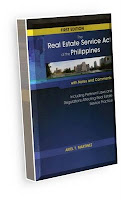Alongside
lower income tax rates but higher consumption taxes, the Department of Finance
(DOF) is considering a massive tax amnesty in four areas as part of its tax
policy reform program.
Finance
Secretary Carlos G. Dominguez III told a tax reform dialogue on Wednesday night
that the DOF was thinking of amnesty for taxpayers with deficiencies in
payments of property taxes, estate taxes, regular taxes such as income taxes
and value-added tax (VAT), as well as amnesty on pending cases in courts.
Dominguez
said the finance department was looking at settlement through payment of a
minimum of 40-percent basic tax as amnesty tax.
ADVERTISEMENT
The
finance chief said the amnesty program would be legislated “to clear up all tax
cases.”
As part
of its tax policy reform proposal, the DOF plans to lower the rate of the
estate and donor’s tax, and also bring down transaction taxes on land, such as
the documentary stamp tax, transfer tax and registration fees.
To
compensate for the lower property tax, the DOF wants to centralize and
rationalize the valuation of properties, increase valuation closer to market
prices, as well as review valuation every three years and adjust it
accordingly.
6-percent
estate tax
Dominguez
earlier said he wanted to see the estate tax rate of 20 percent cut to as low
as 6 percent of the value of the property being transferred.
The lower
estate tax rate would put it on a par with the tax level for capital gains,
which a seller of a property must pay the Bureau of Internal Revenue (BIR).
Sen. Juan
Edgardo “Sonny” Angara earlier filed Senate Bill No. 980, which he said sought
to ease heirs’ tax burden from their deceased relatives’ assets.
“The end
result is that a grieving family will be spared the further anguish of paying
high estate taxes, which often delay the distribution of the assets to the
heirs,” said Angara, chair of the Senate ways and means committee.
He noted
that “[t]his tax hurdle, plus unfamiliarity with estate taxes and cultural
avoidance to discuss death-related affairs, has led families to delay settling
the estate, resulting in huge penalties and surcharges while use of assets is
not maximized.”
Correct
‘income creeping’
Citing
BIR data, Angara said just seven in every 100 deaths settle estate taxes, such
that total payments accounted for a mere one-sixth of a percent of the BIR’s
tax take.
Finance
Undersecretary Karl Kendrick Chua told reporters that the planned tax
amnesty would be complementary to the first reform package, a bill which was
already submitted to both houses of Congress.
The first
of the six tax policy packages would adjust tax brackets to correct “income
creeping,” reduce the maximum personal income tax rate to 25 percent over time,
save for the “ultrarich” who would be slapped a higher 35 percent from 32
percent at present, and shift to a simpler modified gross system.
As lower personal
income taxes would result in foregone revenues estimated at P180.3 billion by
2019, the DOF plans to offset it and gain P377.3 billion by expanding the VAT
base by limiting exemptions to raw food, education and health products and
services; increasing the excise slapped on all oil products and indexing it to
inflation; as well as jacking up excise on automobiles.
The
government stands to generate a net revenue gain of P197 billion from the first
package by 2019.
The DOF
is considering targeted programs similar to the existing conditional cash
transfer program to shield the poor and vulnerable to higher consumption taxes,
which would bring about higher prices of goods.
The first
package would also include tax administration reform measures, including
legislation to relax the bank secrecy laws for tax fraud cases and including
tax evasion as a predicate crime to money laundering.
Clear tax
dockets
In a
presentation at a tax forum organized by the Senate Tax Study and Research
Office on Thursday, Chua said the plan to legislate a final amnesty would be
“absolute” in the sense that availment would clear all tax dockets in the
Bureau of Customs, BIR and in courts.
It would
nonetheless exclude criminal cases, Chua said.
Once
legislated, there would no longer be further tax amnesty for the next 25 years,
he said.
The DOF
plans to impose a higher amount for delayed amnesty payments, according to the
finance undersecretary.
It also
plans to allow compromise for cases pending before the Court of Tax Appeals
that have assessments, while those without assessments would have to pay
5-percent tax on net worth.
________________________________________________________________



